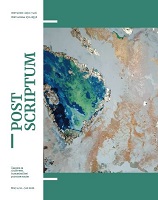Journey is Cognition: About The Concept of Travel and The Typology of Travellers in Croatian Tales of Long Ago
Journey is Cognition: About The Concept of Travel and The Typology of Travellers in Croatian Tales of Long Ago
Author(s): Sanja Vrcić-Mataija, Katarina IvonSubject(s): Semantics, Croatian Literature, Theory of Literature
Published by: Pedagoški fakultet Univerziteta u Bihaću
Keywords: fairy tale; identity of a literary hero-traveller; conceptual metaphor; Croatian Tales of Long Ago; journey;
Summary/Abstract: Following the theory of conceptual metaphor (Lakoff and Johnson 2015) which indicates the connection between language and opinion, the interpretation of the fairy tale journey in Croatian Tales of Long Ago by Ivana Brlić- Mažuranić, placed in the literary-theoretical and literary-historical context of a fairy tale (Težak 1997, Bošković-Stulli 2012, Propp 2012, Winter 2001), encompasses the process of understanding unknown things using known ones. The concept of journey, functionally adaptable to the different semantic matrix of the narrative text (Duda 1998), presupposes knowledge of journey as a culturally conditioned category with constructed meanings: departure, return, transformation, search, exploration, adventure, punishment, penance, temptation, obstacles, maturation, staying, cognition, misfortune, end, joy, etc. By connecting the two conceptual domains, the source one and the target one, the possibility of perceiving their ontological correspondence opens up. In addition to the fact that the journey presupposes the crossing of semantic fields in the bodily sense (Lotman 2001), it is interpreted through the prism of a metaphorical journey whose ultimate goal is to reach certain cognitions. The reasons that motivate Propp defined heroes - seekers and victims - to go on a journey are different, and they are motivated by a lack, material or spiritual. The concept of journey, realized in the fairy tale opus Croatian Tales of Long Ago as a journey through the celestial, terrestrial and underground/underwater world, is functionally realized through subordinate ontological metaphors of escape, temptation, staying, departure or return. The superior conceptual metaphor journey is cognition/ journey is maturation, derived from spatial topography and semantic changes inscribed in it by literary heroes - travellers, proves their ontological status summarized in gaining or confirming a highly ethical worldview realized by travel.
Journal: Post Scriptum
- Issue Year: 2022
- Issue No: 11-12
- Page Range: 243-262
- Page Count: 20
- Language: English

